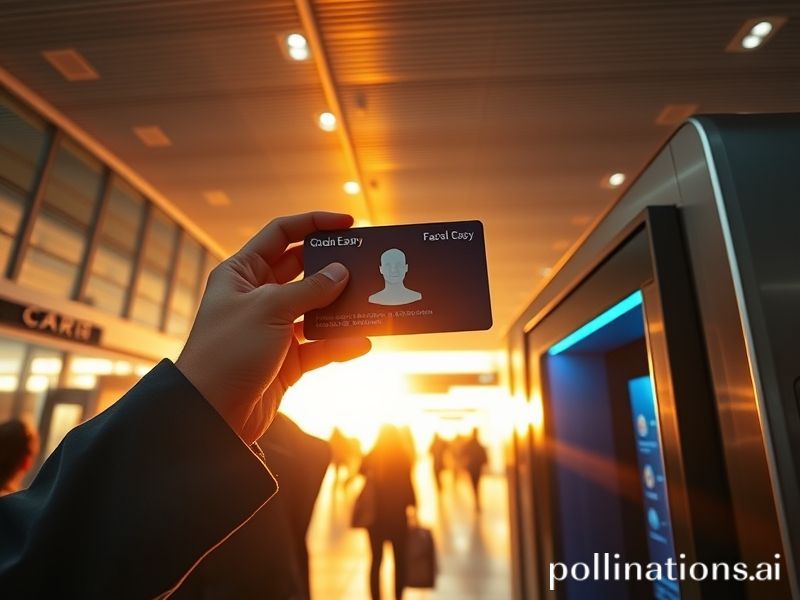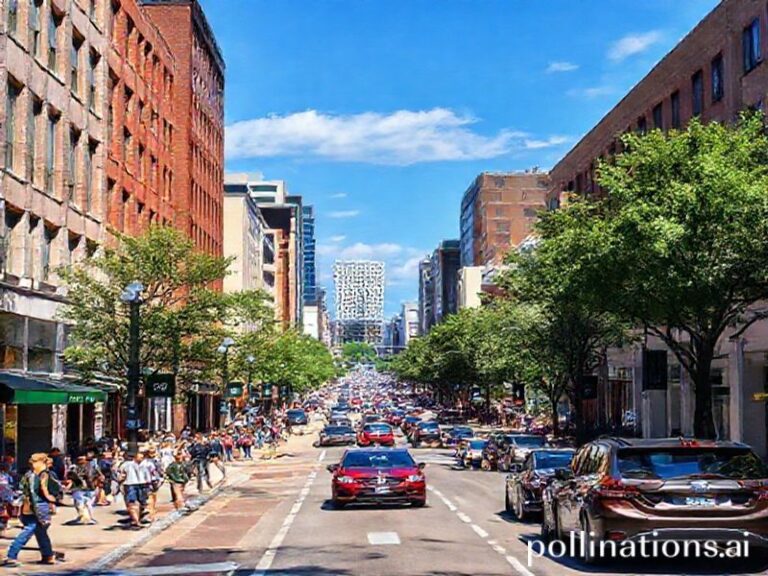Global Entry: The $120 Fast-Pass to Earth’s Growing VIP Section
Global Entry: The Velvet-Rope Passport for the Apocalypse
By Our Correspondent, still waiting in the non-priority queue of existence
The line at passport control in Dubai International looks like the Mos Eisley cantina reimagined by Deloitte consultants. The Global Entry kiosks—sleek, silent, and glowing like confessionals for the sin of efficiency—blink invitingly while the rest of humanity shuffles toward a fluorescent purgatory. Insert iris, press finger, promise you still have the same moral fiber you claimed on the form, and presto: the world’s velvet rope parts like the Red Sea for the already redeemed.
Invented by the U.S. Customs and Border Protection in 2008, Global Entry is marketed as a “trusted traveler” program. Translation: if you’ve never been caught doing anything interesting, you may skip the line. For $120 and the surrender of fingerprints, iris scans, employment history, and that one time you jaywalked in Ljubljana, Washington will vouch that you are statistically unlikely to blow up an airport. One hundred and seventy-three thousand frequent flyers, arms dealers with good accountants, and the occasional minor royal have since enrolled. The rest—tourists, refugees, freelance journalists—continue to practice the ancient art of standing very still while someone in epaulettes decides whether their life story checks out.
From Singapore to São Paulo, governments have taken notes, because nothing travels faster than a bureaucratic fad with revenue potential. South Korea’s Smart Entry Service promises “5-second immigration”—roughly the same attention span the average TikTok user devotes to geopolitics. The EU’s planned ETIAS charges €7 for the privilege of being pre-cleared to spend money in Europe, a continent that once colonized half the planet and now politely asks visitors to fill out a form promising not to. The United Kingdom, in a post-Brexit flourish of performative sovereignty, is rolling out its own e-Gates while simultaneously wondering why no EU citizens want to come pick strawberries anymore.
Global Entry’s genius lies not in technology but taxonomy: it sorts humanity into “trusted” and “suspicious,” categories flexible enough to include oil executives who’ve merely paid fines rather than served time. In the age of algorithmic governance, that is what passes for moral nuance. Meanwhile, Interpol quietly reports that most wanted notices still travel by fax. Progress is uneven, like a drunk walking a straight line for a sobriety test.
The program’s geopolitical side effects are deliciously ironic. Saudi Arabia now offers its own “trusted traveler” fast-track to pilgrims who can prove they’ve never bad-mouthed the crown prince on WhatsApp. China’s “Green Channel” at Shanghai Pudong is so efficient that dissidents occasionally disappear between the e-gate and baggage claim, a logistical feat the TSA can only envy. And in the United States, members of Congress who can’t pass a budget still manage to renew their Global Entry on time, proving that gridlock applies only to legislation, not self-interest.
Climate change, the one queue we all share, adds a layer of gallows humor. The same week CBP announced “expedited processing for electric-vehicle owners,” Category 5 hurricanes politely rerouted themselves around the Miami Global Entry enrollment center. One imagines future kiosks asking not merely “Have you visited a farm?” but “Are you personally responsible for the submersion of any Pacific atolls?” The algorithm will blink, weigh your carbon sins against your TSA PreCheck status, and decide whether to admit you to the ark.
So here we are, hurtling toward a future where the right RFID sticker on your suitcase matters more than the stamp in your passport. Nations once measured power in battleships; now they brag about wait times under five minutes. Global Entry is less a travel hack than a life lesson: the world is splitting into two queues, and the shorter one costs extra. Buy in now—before the kiosks start asking for blood samples and a short essay on why you deserve to exist.







